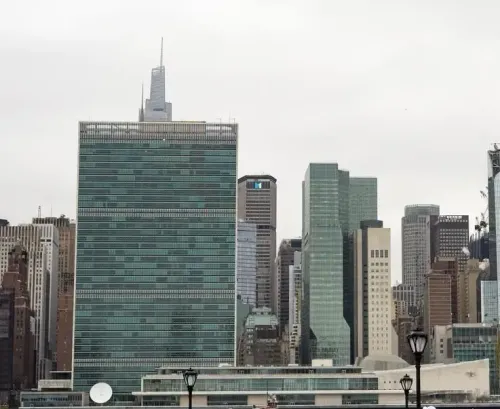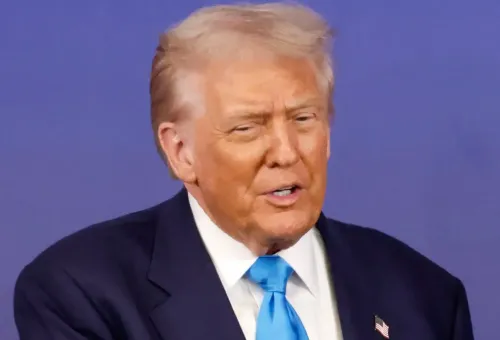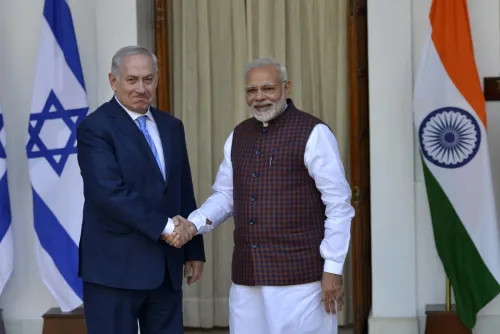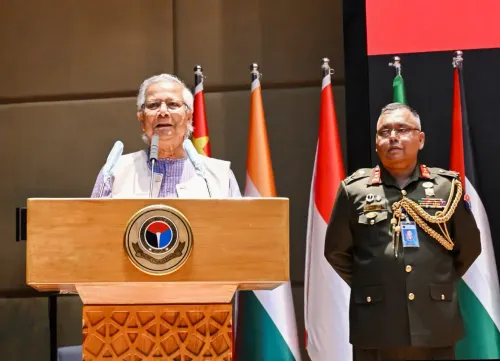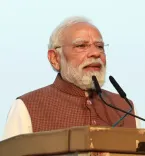How Will Higher US Tariffs Impact Steelmakers Amid Market Downturn?
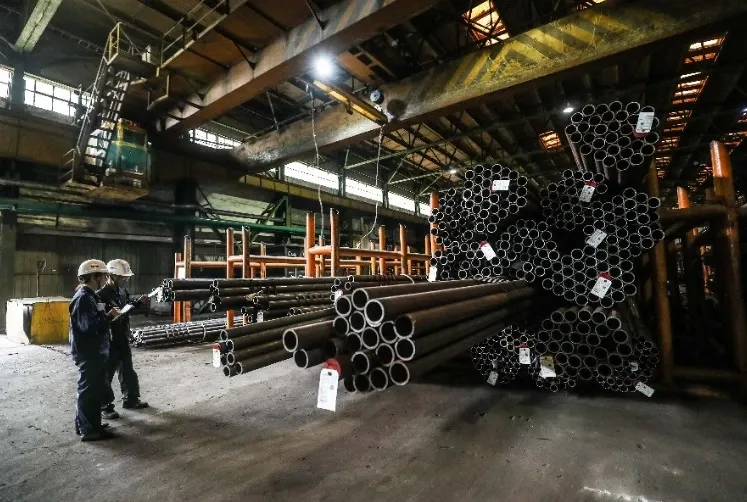
Synopsis
Key Takeaways
- US tariffs doubled from 25% to 50% on steel and aluminum.
- South Korean steelmakers facing oversupply and price drop.
- Hyundai Steel investing US$5.8 billion in a new mill.
- POSCO supports Hyundai's project amid tariff concerns.
- Industry experts suggest a need for high-end products.
Seoul, June 4 (NationPress) A dramatic increase in US tariffs on steel and aluminum imports is poised to significantly affect South Korean steel manufacturers who are already facing challenges such as oversupply and declining prices due to an economic downturn, as reported by industry insiders on Wednesday.
US President Donald Trump has enacted an executive order that doubles tariffs on all steel and aluminum imports from 25 percent to 50 percent, with the new rates coming into effect on Wednesday (U.S. time), according to Yonhap news agency.
Local steel producers, including POSCO Group and Hyundai Steel Co., are actively exploring strategies to navigate the “U.S. steel barrier,” or at least mitigate the impact of these steep tariffs on their business operations.
In March, Hyundai Steel unveiled plans to invest US$5.8 billion in constructing an integrated, electric arc furnace-based steel mill in Louisiana by 2029, with production set to commence in the same year.
This facility, expected to produce 2.7 million tons of steel annually, aims to supply not just Hyundai Motor Co. and its subsidiary Kia Corp., but also other automakers based in the U.S.
Meanwhile, POSCO has opted to invest in Hyundai Steel's U.S. steel mill endeavor, in response to the Trump administration's decision to impose 25 percent tariffs on all steel and aluminum imports in mid-March.
In North America, POSCO operates a steel processing center in the U.S., along with a steel processing facility and automotive steel plant in Mexico.
Experts in the industry believe that recovery from this prolonged downturn will be gradual, as essential clients—the construction and automobile sectors—continue to struggle with weak demand and elevated U.S. tariffs.
“Local steelmakers must focus on producing higher-end products to navigate the current challenges, while the government should implement protective measures against an influx of low-cost Chinese goods,” stated an industry official.
As noted by experts, South Korean steel manufacturers are planning to develop more value-added products and bolster their technological capabilities to lower production costs and enhance global competitiveness.
They also aim to adopt an “item-by-item” export strategy through close collaboration with the government and industry associations.
Last year, South Korea was the fourth-largest exporter of steel to the United States, contributing 9 percent, or US$2.9 billion, of Washington's total steel imports, as per data from the U.S. International Trade Administration (ITA).

